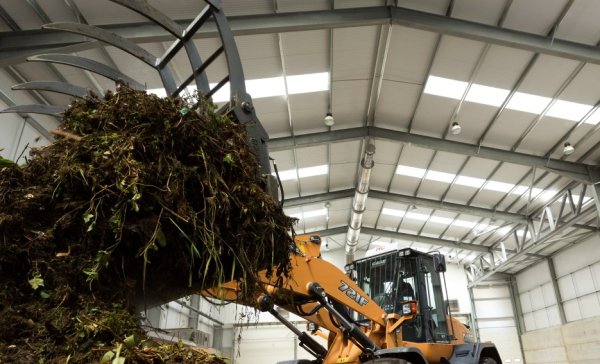Our Responsibility Towards the Environment
We take our responsibility towards the environment very seriously and recognise the important part Close Brothers has to play in supporting the transition to a carbon neutral economy. Our efforts to reduce the impact of our operations on the environment continue at pace, and we strive to take actions that make a positive contribution to the world around us.
As a financial services organisation that appreciates the challenge of climate change, we recognise the importance of considering the risks that it poses to our operations and the way in which climate change impacts our business model. Careful consideration of environmental factors and potential risks now plays an integral role in the actions we take, alongside thoughtful evaluation of where opportunities may arise for Close Brothers to make a meaningful difference through our business decisions.
Our green energy lending business has been a leading provider of finance to the renewable energy sector for a number of years, supporting schemes for wind, solar and hydro power developments. We are also aware of our responsibility to protect natural resources and act sustainably, and continue to monitor ways to lower our energy consumption, reduce emissions and increase recycling.
Our environmental strategy
Our internal Environmental Policy outlines our approach and commitments to managing our environmental sustainability. Our commitments under this policy include:
- Compliance with all environmental legislation and codes of practice throughout the different areas we operate in and, where possible, demonstrate best practice in environmental stewardship;
- Continue to monitor and report on our environmental footprint both internally and externally;
- Reduce our direct environmental impact from our operations through the introduction of various initiatives related to waste reduction and management, and our use of transport, energy and water;
- Minimise unnecessary consumption, improve rates of recycling and promote the use of recycled materials wherever possible;
- In particular, we will focus on energy efficiency, the purchase of renewable energy and the reduction of emissions from our fleet vehicles;
- Over the longer term aim to reduce our indirect environmental impact by working with our value chain and promoting efficient and responsible behaviour from both our customers and suppliers; and
- Raise awareness of environmental issues and promote responsible behaviour amongst our employees by engaging them through our “Green Team” of employee representatives, undertaking group wide initiatives and activities, and regularly conducting staff environmental surveys.
Our environmental impact
We direct each of our businesses to manage their resources and recycling locally and work closely with all of the locations we operate in to identify new and additional ways to reduce energy use. Waste recycling is encouraged in all our offices, and our head office uses a waste contractor that ensures zero waste goes to landfill.
We also continue to participate in the CDP (formerly the “Carbon Disclosure Project”), which allows us to disclose our greenhouse gas emissions and our approach to managing climate related impact on a voluntary basis.

Reducing our emissions
Our Scope 1 fuel emissions from company vehicles continue to fall, and reflects a significant and sustained improvement from an increase in the number of more fuel efficient and alternative fuel vehicles such as plug in hybrids, which have been added to our vehicle fleet.
Our Scope 2 electricity consumption is our largest source of GHG emissions but continues to reduce on previous years, which demonstrates our ongoing commitment to improving the energy efficiency of our offices.
Reduction in scope 1 fuel (owned vehicles)
46%
Reduction in total location based GHG emissions
20%
GHG scope 1 and 2 emissions by division (tCO2e)
GHG emissions and energy use
In 2020, our total GHG emissions were 3,694 tonnes of carbon dioxide equivalent (“tCO2e”), equating to 1.05 tCO2e per employee, down 20% overall and 23% per employee since 2019.
1. Figures for the 2019 financial year have been restated to include Scope 3 employee vehicles and electricity transmission and distribution emissions in accordance with SECR reporting requirements.
2. Total energy use reported for the 2020 financial year as required under SECR disclosures, but comparative data not collected for the 2019 financial year.
Note: Our methodology for calculating and disclosing our GHG emissions and energy use is in accordance with the requirements of the World Resources Institute GHG Protocol Corporate Standard and the SECR standards.